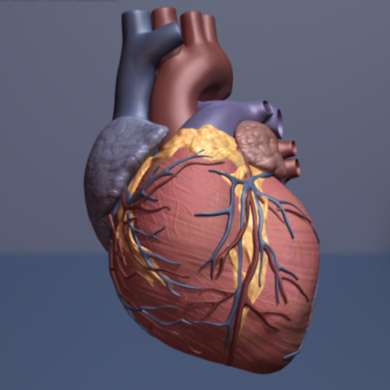Modulating copper levels in the treatment of heart disease

An article published in Experimental Biology and Medicine provides new insights regarding the use of trientine (TETA), a copper chelator traditionally used to treat copper overload conditions such as Wilson's disease, in the treatment of heart disease. The study, led by Dr. Y. James Kang, professor from the Regenerative Medicine Research Center at Sichuan University West China Hospital in Chengdu, China and the Memphis Institute of Regenerative Medicine at University of Tennessee Health Science Center in Memphis, TN, USA, reports that low dose TETA therapy restores copper levels and improves heart function while high doses are detrimental.
Heart disease remains the leading cause of death throughout the world. Myocardial ischemia occurs when the heart muscle (myocardium) does not receive enough oxygen to function normally. Cardiac hypertrophy is an abnormal enlargement of the heart in response to pathophysiological events. Both ischemia and hypertrophy are accompanied by structural and functional changes in the heart that include loss of copper. Studies in animal models have shown that copper replenishment reverses the structural and functional alterations that occur in the ischemic or hypertrophic heart. In addition, patients treated with TETA exhibit normal cardiac copper levels and improved heart function. The beneficial increase in cardiac copper levels is paradoxical because TETA is a copper chelator and removes copper from cells/tissues. Ascertaining the mechanism by which TETA increases cardiac copper levels would improve therapy for patients with cardiac ischemia or hypertrophy.
In the current study, Dr. Kang and colleagues examined the effects of TETA treatment in an animal model of cardiac hypertrophy. Lower doses of TETA delivered copper selectively to the hypertrophic heart. The functional lower dose did not alter copper levels in other organs or the normal heart. In contrast, higher doses further reduced copper content in the hypertrophic heart. Both low and high doses reduced copper concentrations in the blood. Dr. Kang said that "We are excited to have worked out the relationship between the concentration of TETA and the hypertrophic heart-selective copper delivery by TETA. Since most patients with ischemic or hypertrophic heart suffer from an elevated copper level in the blood and reduced copper content in the heart, this simple and safe treatment with low dose TETA is an approach of 'kill two birds with one stone'. This would help to develop alternative approaches to treat patients with ischemic heart disease."
Dr. Steven R. Goodman, Editor-in-Chief of Experimental Biology & Medicine, said, "Kang and colleagues have made a major contribution to our understanding of the biological function of TETA as copper chaperon to treat cardiac hypertrophy. This important study indicates that TETA has a dual function with regards to copper metabolism in the body, which is distinguished by the level of dose. It behaves as a copper deliverer specifically to ischemic heart in lower doses, and otherwise as a chelator in higher doses."
More information: Jiaming Liu et al. Feature Article: Trientine selectively delivers copper to the heart and suppresses pressure overload-induced cardiac hypertrophy in rats, Experimental Biology and Medicine (2018). DOI: 10.1177/1535370218813988

















